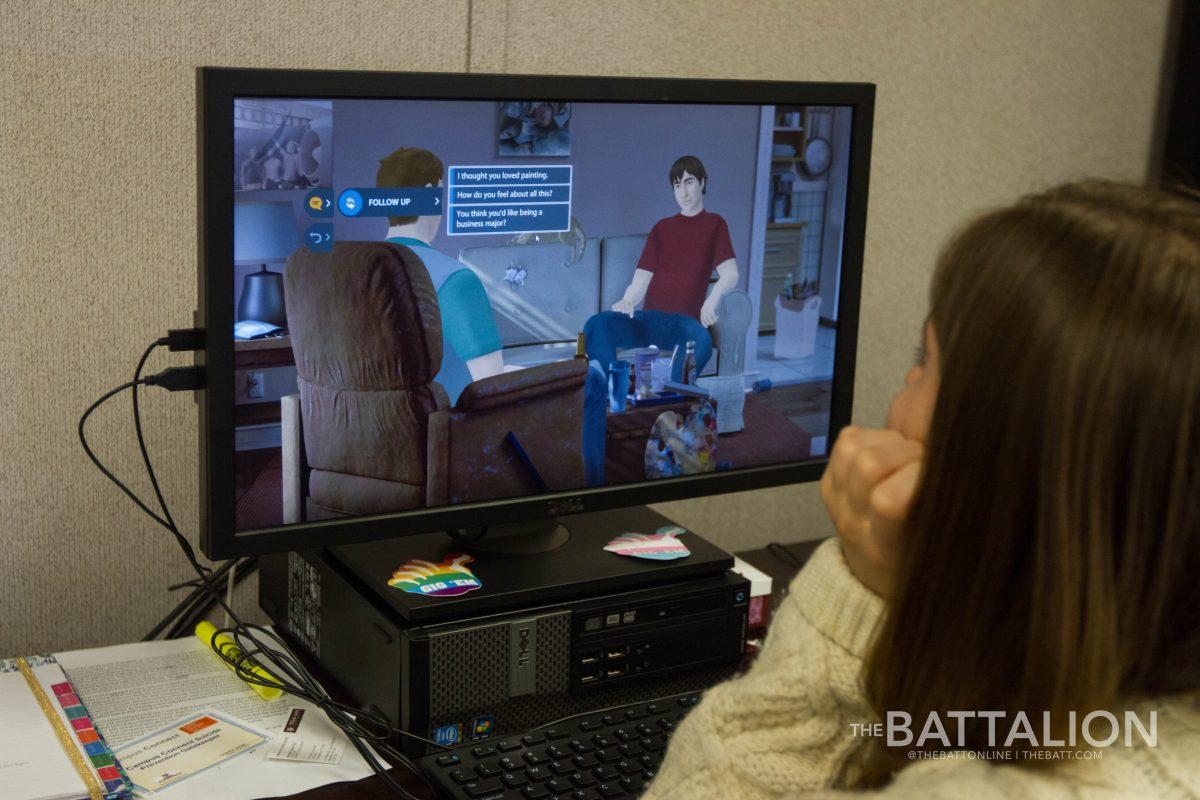On April 3, students can pilot test a simulation program designed to teach users how to identify and assist students in distress.
The program — offered through the Office of Suicide Prevention and one of the many training modules produced by online health simulation company Kognito — will begin in the fall of 2019. Introducing Kognito simulations to Texas A&M was made possible by the Garrett Lee Smith Campus Suicide Prevention Act Grant, which Student Counseling Services received last year. This semester, students who sign up to pilot test the program will spend an hour and a half using it and giving feedback. The online role-playing simulations train users on how to lead conversations with people in crisis and how to connect them with support.
Counseling services assistant director Santana Simple said the counseling center is not always able to help every student on campus and this program will utilize students’ desires to help their peers and assist more students.
“What we know through our suicide prevention trainings is there is a lot of people who want to support individuals who are maybe just distressed or that may be having suicidal ideations,” Simple said.
There are currently in-person trainings where students can learn how to help their peers, but Simple said it can be a challenge for students to attend and she hopes the convenience of Kognito will increase the number of students who take this type of training.
The Kognito simulations are designed to help train its users to become gatekeepers. Glenn Albright, co-founder and director of research at Kognito, said a gatekeeper is someone who can identify an individual who is in psychological distress and know how to correctly help them. distress and know how to correctly help them.
“These simulations were built to really prepare faculty and students on how to become gatekeepers and to feel confident in their ability to do so which will enhance mental health,” Albright said.
The learner can get assistance from a virtual coach that gives feedback for every conversation decision the learner makes, whether it be positive or negative. The program provides overviews on different lessons, such as how to connect with an at-risk person, and also gives short quizzes to make sure the user understands the trainings. The simulations can be done in 35 minutes.
Kognito places the learners in a virtual online environment where they can talk to virtual humans. These people have a personality, memory and emotional responses that allow them to behave similarly to a student that is experiencing psychological distress.
“The learner has the opportunity to practice what can be a really challenging and difficult conversation with this virtual student and getting them to feel comfortable on opening up and talking about what’s going on,” Albright said.
Mary Ann Covey, director of counseling services, said she hopes the simulation is part of the freshman experience either through Fish Camp or Living Learning Communities and wants upperclassmen to get involved as well.
“This is kind of showing a way to have those conversations that can be more productive for both sides, for the student that’s worried about other students as well as the student that’s struggling,” Covey said.
Training for vital conversations
March 27, 2019
Photo by Photo by Kaylee Cogbill
Students can register to test Kognito simulations starting on April 3. The program will help users assess the signs of psychological distress and help at-risk students.
Donate to The Battalion
Your donation will support the student journalists of Texas A&M University - College Station. Your contribution will allow us to purchase equipment and cover our annual website hosting costs.




















